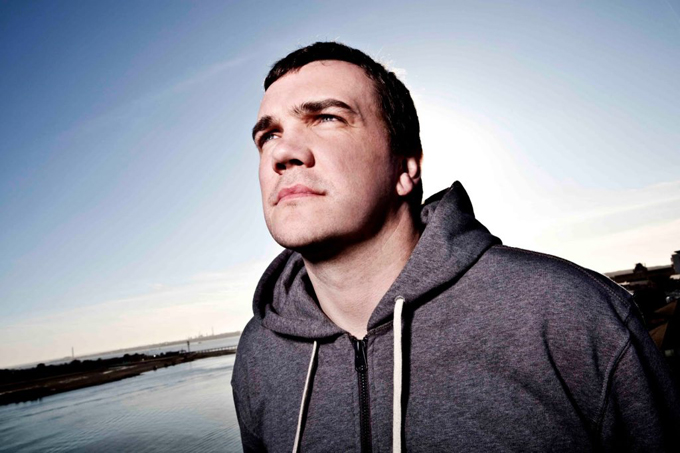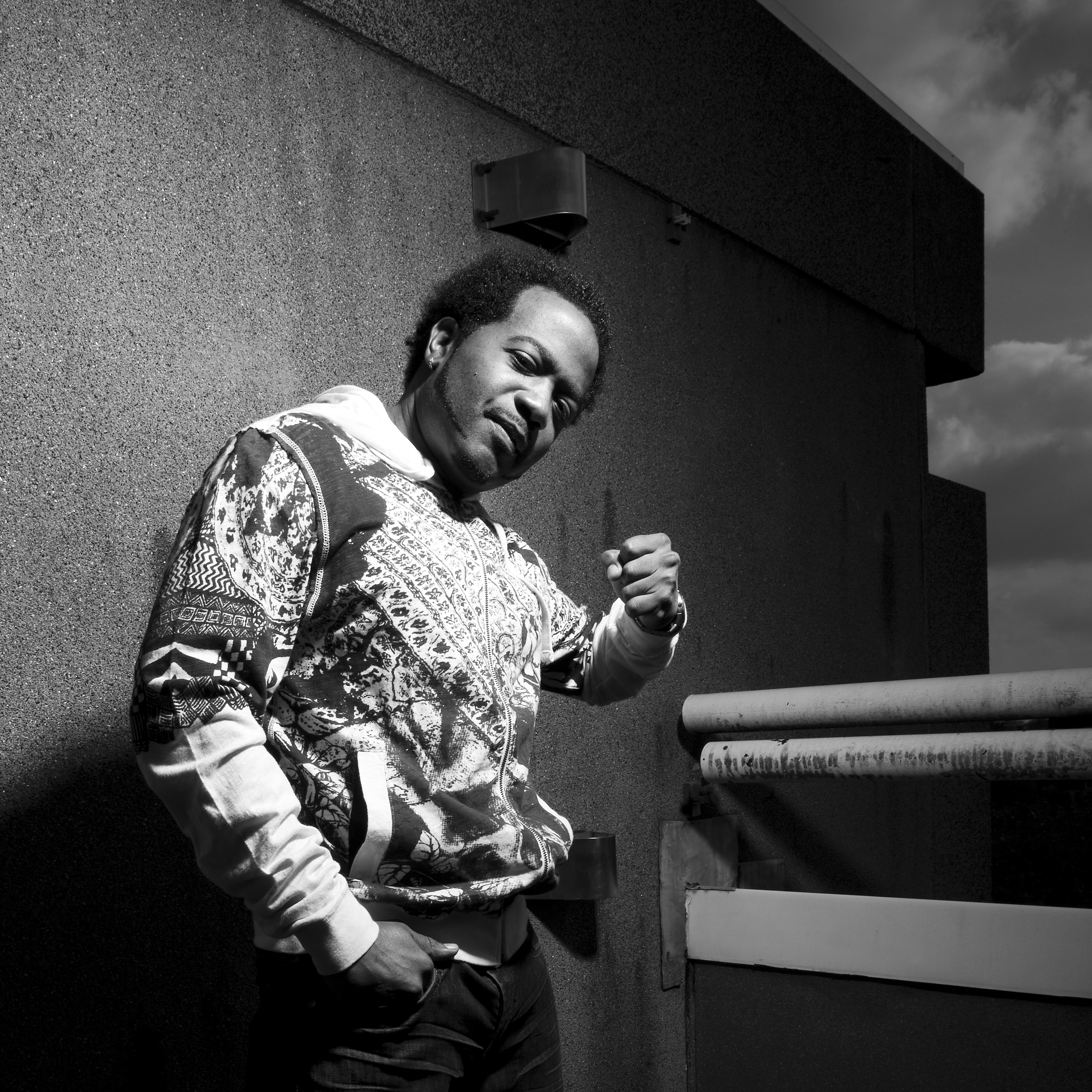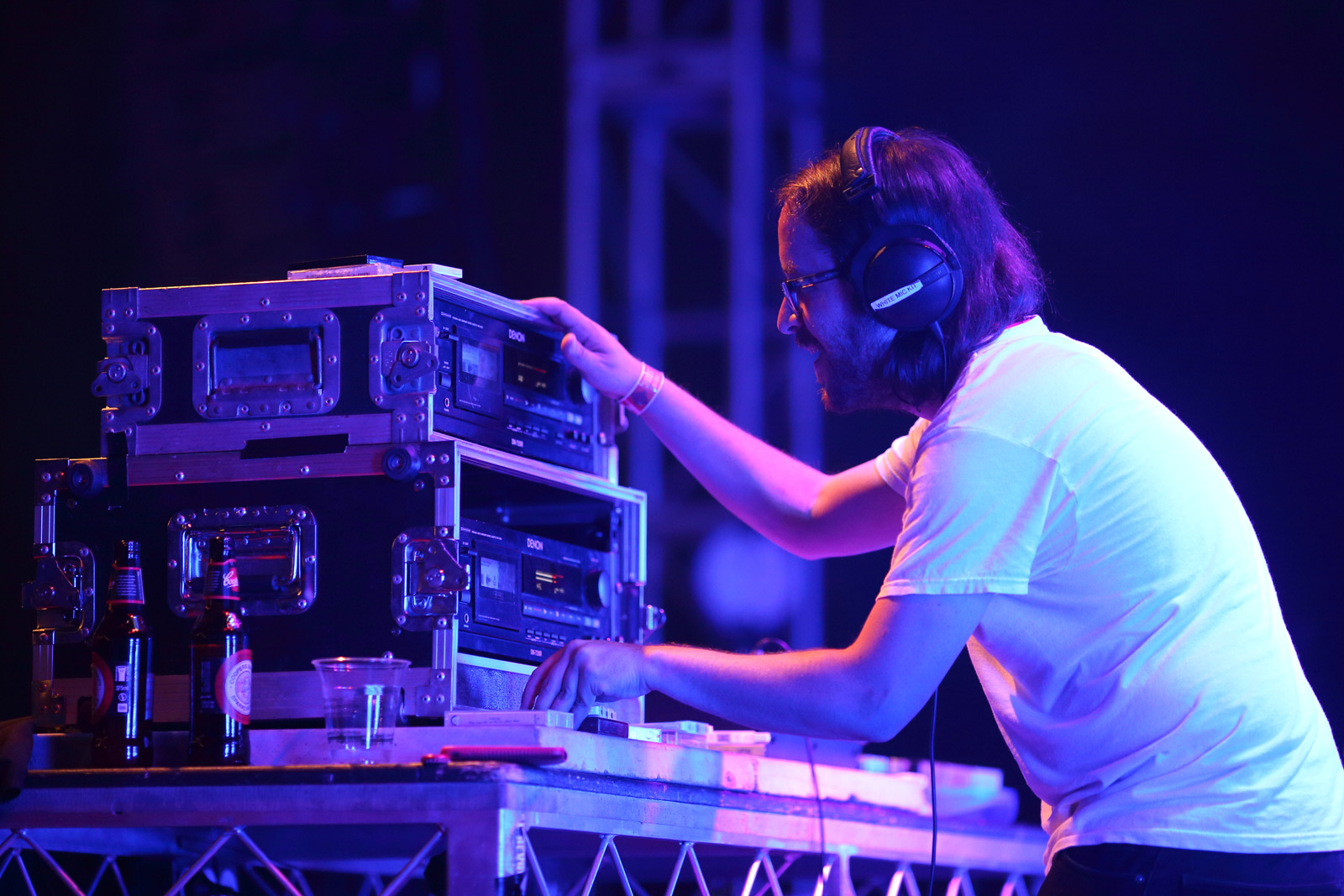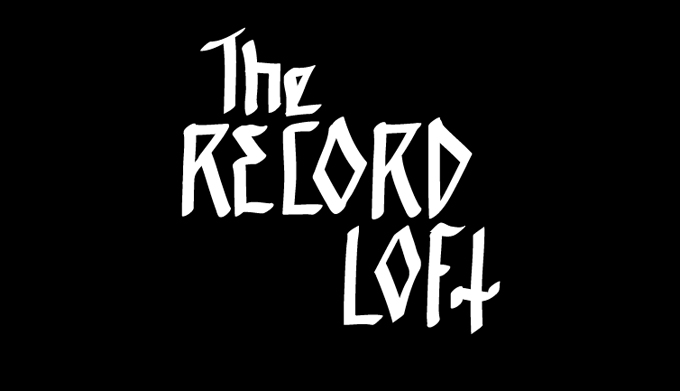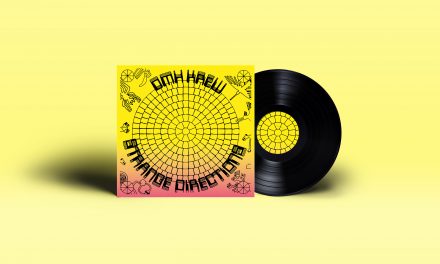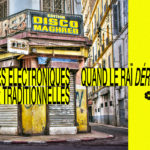Having a concept is nice but to apply it and to illustrate with concrete facts is always better. As a matter of fact, we could easily qualify Perc as a man of concept as he seems to pay attention to what he is doing and especially how he do so. From his first appearance in the record boxes around 2003 to his last albums we could have notice a clear aesthetic research which was constantly refined from the first try to the way it sound now. Since 2007, his imprint Perc Trax never stopped to promote a certain idea of techno, which came to be more and more precise with the time. “Wicker & Steel” was probably one of the key points in the career of the British producer whereas “The Power and The Glory” highlights a crunchy and never-ending aspect theme about the ownership of a piece of art and the liberty of interpretation left to the audience. Consequently to his booking at the Peacock Society Festival in Paris we thought it would be relevant to ask him few questions.
– When we check to your career on the several resources, we could access to on Internet it seems that it always has been a constant and linear progression about finetuning a certain sound and aesthetic. From which point it all started on your side?
Well at the start I was just trying to make music that would fit in both my own club sets and in the sets of DJs I respected. Probably later, but after a while you achieve some early goals, like hearing one of your tracks in a club, having your first vinyl release and having DJs you love playing your tracks. This stuff is still important to me but, of course, like everything, after it happens for many times it is as not exciting as the first time. This for me is the break point that separates great artists from people who I just consider as ‘producers’.
There comes a point where you know you have won a certain amount of respect from your peers. Some people are satisfied at this point and just push for more club plays, gigs and therefore money. Where the great artists look inward, to satisfy themselves and make music primarily for themselves. I’d like to think this is where I am not and doing this means I more satisfied with my music than ever before and I think possibly more recognised for what I do than I was before.
– Innovation, self-questioning and avoiding repetition seems to be very important concerns in your creative process? How do you approach the notion of concept in techno that sometimes blurs the need of a story and the promotion thing?
I think some concepts or theme are very important to hold a release together, especially an album release but a great concept without the music to back it up means nothing. Avoiding repetition is a key thing for me. If I am bored by what I do (even if it is making me money) then why should anyone else be interested? A good artist builds on what they did before and keep moving forward. No sharp turns to another genre just to chase fame, but a steady development of their vision of music. As you say, of course, some concepts are retrofitted to releases to give to the press release something to talk about. Whilst the tracks were being written, they were probably just called “Track#46”, etc. For me, I like to have a strong concept before I start an album. The way it’s interpreted might change from the initial idea in my head to the final release, but the concept still has to be there from the beginning.
– But you started releasing music in 2002 and you released wicker and steel almost 10 years after. What was the click to find a guideline as strong as it fits you?
When thinking about working on my debut album, I realised two things. That firstly, there are very few great techno album, which work as proper listening albums, not just collections of club tracks. Secondly,you only get one chance to release your debut album and it is probably the album that will get the most attention no matter how many albums you make.
For these reasons I held off for a few years, until I had some level of recognition and respect in the music scene, I work within and also until my production skills were mature enough to make the range of tracks required for an album. I think W&S was my third attempt at an album. The first attempt was completely scrapped and from the 2nd attempt only ‘Purple’ was ever released (on CLR).
But in the same time you were not idle… You founded your own imprint you released on several label do you think these things were also necessary to your development as a producer?
Yes, of course. Perc Trax gave me the freedom to be myself, release what I wanted, when I wanted and to make mistakes. Working with other labels gives you a glimpse into how other people work and how they promote and present music. Lucy at Stroboscopic, Chris at CLR and Michael at Kompakt are all huge influences on how I work now as working with each label gave me experiences and knowledge that I could take back to help Perc Trax and my own music.
– You also released your two LPs on your own label things that not so much artists do. Was it important for you to master everything from scratch to the finished product? Being your own A&R is not that easy…
It’s all about control. If another label asked me for an album and I found it a tempting offer, I would not let them hear anything until I presented them with a completed album. If they wanted to change the track list or asked me to make a certain kind of track to finish the album in their eyes then I would just go somewhere else.
My albums are the key milestones in my career, and I believe they are what I will be judged on in years to come. Therefore, I need complete control of the music, production, mix downs, mastering, artwork and promotion. If I released an album with another label and I felt that we had failed in one of these areas and it was not my fault then, I would never forgive myself. At least with Perc Trax every success and failure is down to me and I can accept that.
– Your last LP had a big political reclaiming after the release. In a world were journalism and subject to write about are to subject coexisting and interlinked. In which extent do you think an artist own his work and to where can go the reinterpretation?
Hmmmm, of course, from the moment an album or even an EP is released it is not yours anymore. People interpret it was they see correct and journalists will write whatever they see the album as standing for. I’ve learnt you can lead people in a certain direction with artwork, press releases, etc. but you still have not the control once the release is out there. It also refers to having a concept for the release it gives people something to hang album reviews and features off and hopefully acts as a starting point for interviews.
There is nothing worse than reading that an album is described by the artist or label as ‘a collection of club bangers written over the last 3 years’ or ‘XXXXX artist returns with his 12 album of dub techno.” It is exactly the shit that makes techno (and dance music more widely) have a reputation for releasing dull, unconsidered albums. It makes me so angry and makes me even more want my own albums to have some lasting value and to be so much more than a folder of random club tracks.
– But The Power and The Glory initially had a political angle, had not it?
It started with a political angle and still had one when released I thought. I was neither subtle nor in your face. Of course, with largely instrumental electronic music it is harder to get across these message than being a singer standing there with an acoustic guitar but I felt there was a strong political message running through the album that a lot of journalists and reviews picked on up.
– For an LP, it makes sense to have a strong concept and an idea to develop, but do you think that techno was anyhow political ever? Do you think the club codes are in any way linked to a protest or a denunciation of something? How did you deal with this aspect as you were defending your LP in clubs?
Techno has never been that political, but now it is less political that ever. There are many reasons for this, maybe just people, especially in the UK, are more politically apathetic than ever before. The thing about my last album is that it does not ram the politics down your throat, the club tracks can be played in a club, and they still work as club tracks. It is a balance between making music that works as music and making tracks that have some message and worth and lasting value.
– It seems you refined a lot your sound to something more precise, you took risks on your remixes’ choices; you went more on the Throbbing Gristle influence and Cabaret Voltaire, maybe also Muslim Gauze. There was a high political approach in these music which sounds still relevant nowadays. Do you think it’s the only way to resist to the damage of time?
Yes, I did. Though I will say, I have never heard a Muslim Gauze track in my life. It is something I’ve meant to dive into for a while, but I’ve never done. It is strange because a political angle should freeze the album in time. Connecting it forever with the politicals of the time of its creation, but yes, instead it gives it something more to be part of, to be more than just music and to be something of worth.
– If you think about it, this is the same thing with Photography. It’s a picture of the moment, but it last forever.
Of course, but a photograph, even if the photographer sets the scene and does some post-processing of the image is still a literal representation of a moment in time. Maybe a recording of a live band playing instruments is the same. But electronic music comes from no foundation; it is just generated and recorded, it has no basis in a performance moment. Especially the way I produce, which is very slow and considered with very little ‘performance’ left that is not extensively edited and manipulated far away from its original state.
– Do you produce at your place or do you have a studio?
I have a studio at home. There have recently been some features about it online. One person said it was a trick by me that I was lying about using my cheap, lo-fi equipment that the article showed to make the music that I make. Haha, if only.
– Is it normal for you to be constantly surrounded by the possibility to work on your devices did you ever felt the need to take a distance?
I prefer to be surrounded by my machines, to live with them and always to have them on hand. A studio in a separated part of the house would be ok, but even having a studio that was a 10 minute walk away would create a distance between home and making music. It would probably change when and how I could act upon ideas. I’ve never felt the need to make space between my music and non-music life. Its are intertwined, and I work 16 hours a day yet it rarely feels like work, as I love what I do.
– From the moment you started to now, how did your studio evolved with the time?
Oh it constantly changes, equipment comes and goes all the time. Over time, it has gone from being purely hardware to a fusion of hardware and software processes but apart from that there is no real pattern. It is mainly effects pedals and drum machines, with the occasional synth appearing. If I like something, it stays, if not it goes, I am not very much of a hoarder.
– Last year you opened two sublabels, how your business’ vision evolved with from 2007 to now?
I have become more business like but I still feel I do this for the love of the music and of the artists rather than as a business or money making thing. The move to albums is obviously the key thing, but stopping doing digital-only releases was also a key move as well. There are still other areas I want the labels to move into, but I am cautious and never want to grow too soon or get too in people’s faces trying to promote and sell things. I hate it when other labels do that, so I do my best not to do it myself.
– Usually when artists open their label it’s for a need of independence for themselves but also for with a concern of schedules convergence. What was the first move for you?
You are right; it was both of those things. Creative and financial independence but also being in control of scheduling when your music is released. Having one label releasing something you did a month ago when another label released something it signed from you 18 months ago is very frustrating and destroys any sense of linearity for the supporters of the artist, making it hard to track and appreciate and artist’s development.
– How do you deal with it with the artists that you support and you want to push? How do you work them?
I have to get on with an artist on a friendly / personal level, that makes everything a lot easier. I guess they have to have a certain Perc Trax attitude. I promote them the best I can, but Perc Trax does not have a profile or financial muscle to offer exclusive recording deals. I expect the artist to promote themselves a bit and not just hide away expecting the label to do everything. If they work with me then results are possible, in terms of sales, recognition and an increase in how often they are gigging, but it is hard, and sometimes there are artists that I think are amazing and for some reason or another it does not work out.
– Over the years you made a lot of remixes how do you think this exercise of style?
Well I have not made that many. That many show up on Discogs as many have been re-released a few times or licences to other labels or listed as both the original 12″ release and then listed again for any compilations they have appeared on. I love remixing, it is always a challenge and yes, early on I did some purely for the money but not I pick and choose who I remix more carefully. Recently I’ve remixed East India Youth, a UK singer and songwriter, Ikonika on Hyperdub and I’m about to remix an American noise artist I respect a lot. It is the perfect mix for me, different music to the field I work in but still artists I love. The idea right now of remixing a techno track into a slightly different techno track is not appealing any more in any way.
– Now, what are the other projects appealing you also right as a producer?
Right now I’m just taking time out after the album. As I mentioned, I’ve done a few remixes but I don’t want to do any more for a while. Instead, I am just demo-ing my own new tracks, buying and learning new studio equipment and, of course, keeping my ongoing collaboration with Truss active.
– A last word for the readers?
Thanks for the support, both for me and for the Perc Trax artists. See you all soon!

